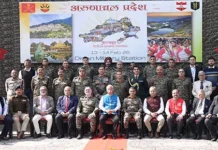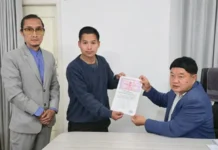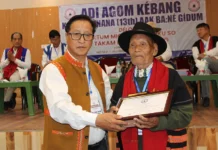NEW DELHI, 7 Jun: Taiwan on Friday rejected China’s outrage over a “cordial” exchange of messages between Prime Minister Narendra Modi and Taiwanese President Lai Ching-te, describing Beijing’s reaction as “utterly unjustified.”
The comments by the Taiwanese foreign ministry came a day after China protested the exchange between Modi and Ching-te, contending that it opposes all official interactions between Taiwan and countries having diplomatic relations with Beijing.
“#China’s outrage at a cordial exchange between the leaders of 2 democracies is utterly unjustified. Threats & intimidation never foster friendships,” the Taiwanese foreign ministry said on X.
“#Taiwan remains dedicated to building partnerships with #India underpinned by mutual benefit & shared values,” it said.
On Wednesday, Lai greeted Modi on the National Democratic Alliance’s victory in the Lok Sabha polls and said that Taiwan is looking forward to enhancing the “fast-growing” ties between the two sides.
“My sincere congratulations to Prime Minister @narendramodi on his election victory. We look forward to enhancing the fast-growing #Taiwan-#India partnership, expanding our collaboration on trade, technology & other sectors to contribute to peace & prosperity in the #IndoPacific,” he said on X.
In his response to the congratulatory message, Modi said: “Thank you @ChingteLai for your warm message. I look forward to closer ties as we work towards mutually beneficial economic and technological partnership.”
At a media briefing in Beijing on Thursday, Chinese foreign ministry spokesperson Mao Ning, when asked about the exchange of messages between Modi and Lai, said that China has protested to India on this matter.
China considers Taiwan as its breakaway province and insists that it should be unified with the mainland, by force if necessary. Taiwan, however, sees itself as completely distinct from China.
Ning said that there is “no such thing as ‘president’ of the Taiwan region.”
“As for your question, China opposes all forms of official interactions between the Taiwan authorities and countries having diplomatic relations with China. There is but one China in the world. Taiwan is an inalienable part of the territory of the People’s Republic of China,” she said.
“The one-China principle is a universally recognised norm in international relations and a prevailing consensus in the international community,” Ningsaid.
“India has made serious political commitments on this and is supposed to recognise, be alarmed about and resist the Taiwan authorities’ political calculations. China has protested to India about this,” she said.
Trade and economic relations between India and Taiwan are steadily expanding in the last few years though the two sides do not have formal diplomatic ties.
In February, India and Taiwan inked a migration and mobility agreement that will facilitate employment of Indian workers in diverse sectors in the self-ruled island, a move that is seen as reflective of renewed momentum in cooperation between the two sides.
In 1995, New Delhi set up the India-Taipei Association (ITA) in Taipei to promote interactions between the two sides and to facilitate business, tourism and cultural exchanges.
The ITA has also been authorised to provide all consular and passport services.
In the same year, Taiwan too established the Taipei Economic and Cultural Centre in Delhi. (PTI)




